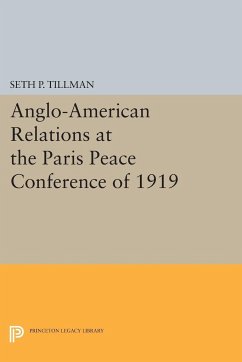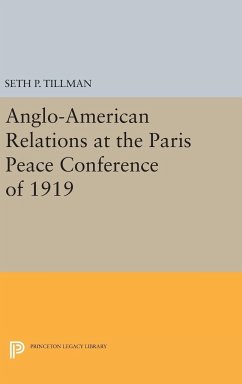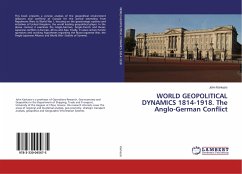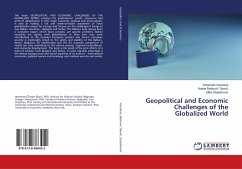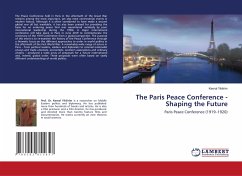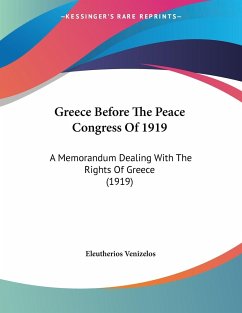
The Paris 1919 Peace Settlement and the Balkan geopolitical realities
A small survey on post WWI geopolitical reshuffle of the Balkans and its` contemporary consequences and determinants
Versandkostenfrei!
Versandfertig in 6-10 Tagen
47,99 €
inkl. MwSt.

PAYBACK Punkte
24 °P sammeln!
The current geopolitical conditions, in which unquestionably we feel the effects of the First World War around us, necessarily focus on the unstable situation in the Middle East as well as in the region of the Eastern Mediterranean, defined as potentially "inflammable" war zones. However, following the contemporary trends of history, the observer can`t ignore the gradual shift of this situation to the Balkans, which, viewed through the scope of Geostrategy, represents a minor but significant link to the European-Near East conflict. Although the ideologies and history are usually employed when ...
The current geopolitical conditions, in which unquestionably we feel the effects of the First World War around us, necessarily focus on the unstable situation in the Middle East as well as in the region of the Eastern Mediterranean, defined as potentially "inflammable" war zones. However, following the contemporary trends of history, the observer can`t ignore the gradual shift of this situation to the Balkans, which, viewed through the scope of Geostrategy, represents a minor but significant link to the European-Near East conflict. Although the ideologies and history are usually employed when we fail to solve the ongoing challenges, discussing the past, without using it as a convenient alibi that creates problems and covers responsibilities for the present and the future, could be an attempt to offer a perspective of geopolitical realities. The analysis of the post WWI geopolitical reconstruction of the Balkans according to the Paris 1919 Peace settlement, representing the part of complex processes more than century ago, could potentially represent an useful tool and may somewhat clarify contemporary events at the same geostrategic points.



